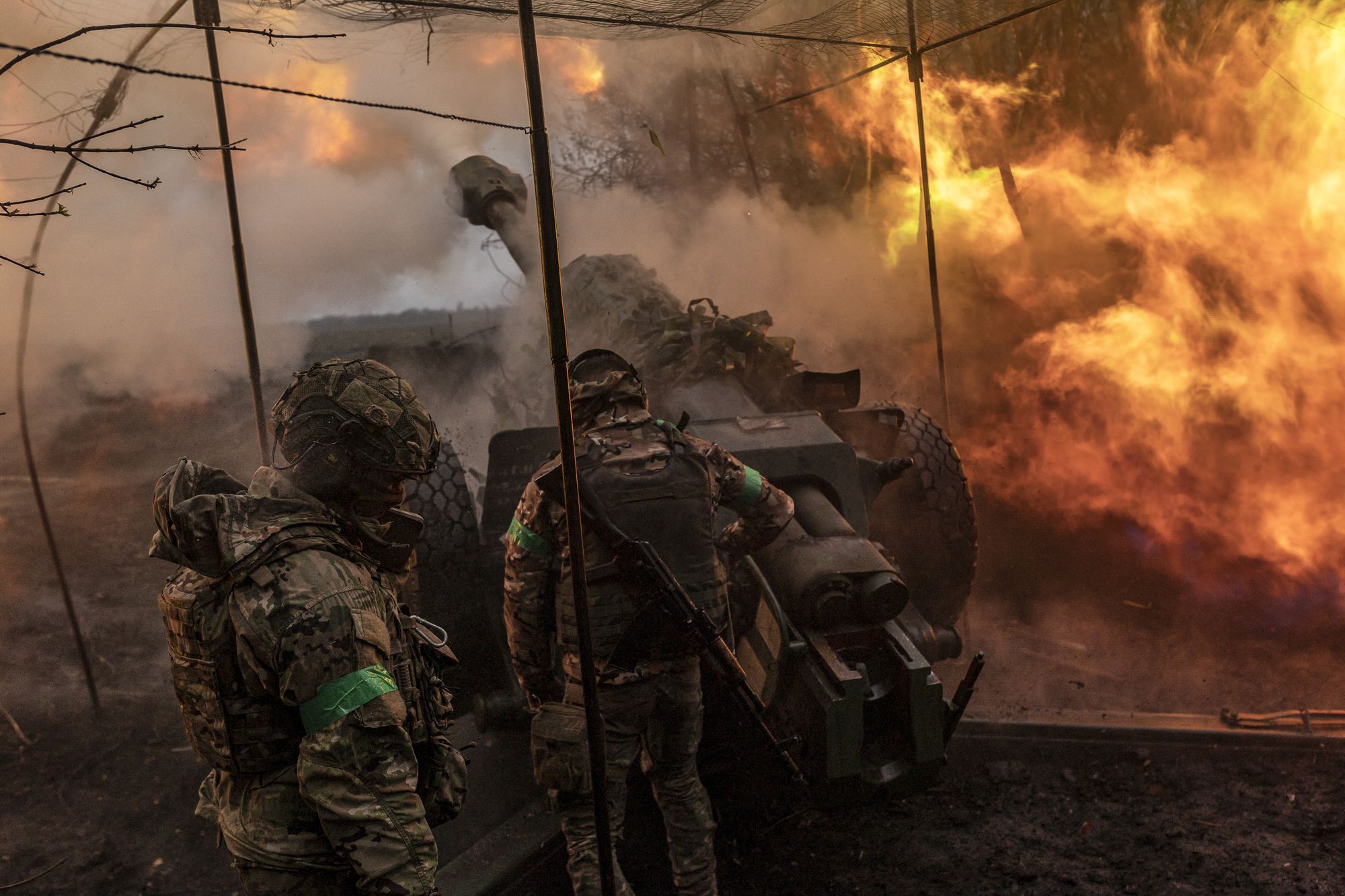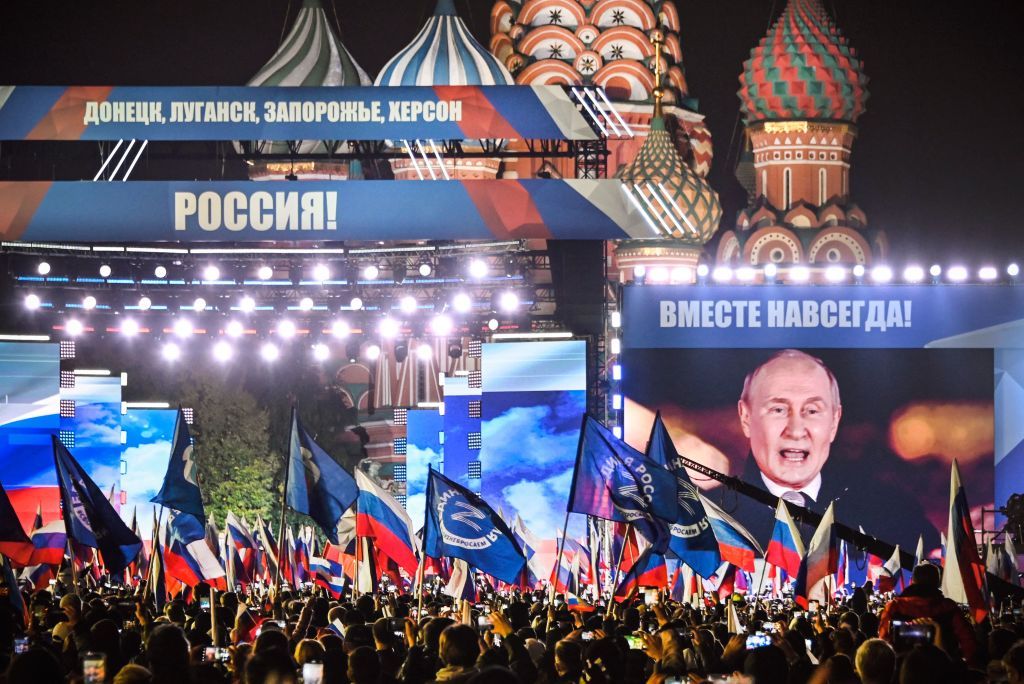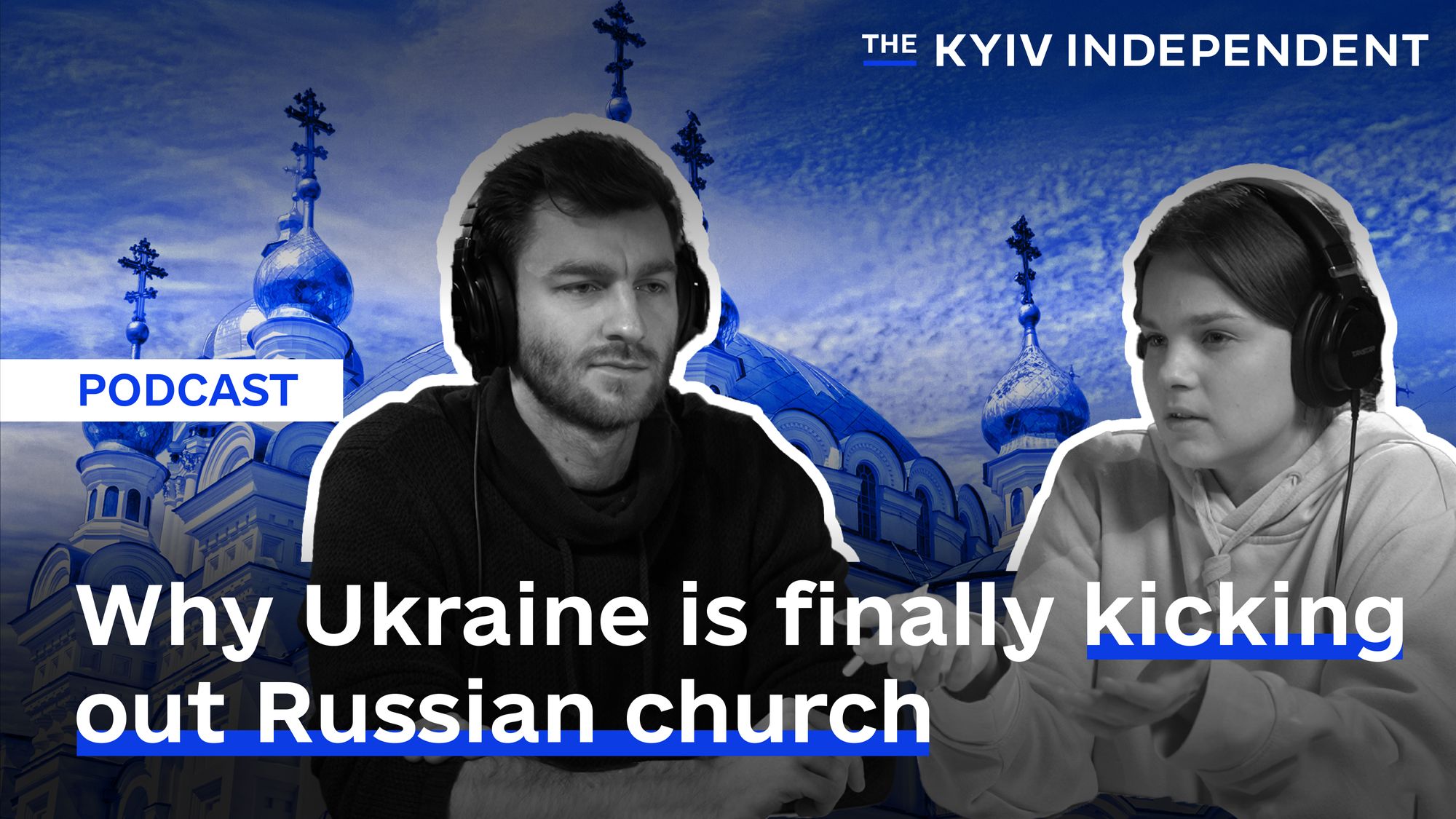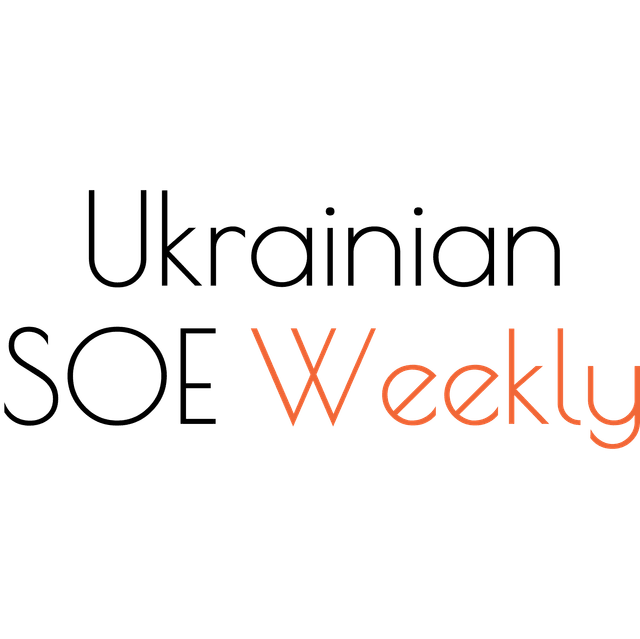Ukrainian State-Owned Enterprises Weekly – Issue 83

Editor’s Note: This is issue 80 of Ukrainian State-Owned Enterprises Weekly, covering events from April 8-14, 2023. The Kyiv Independent is reposting it with permission.
Ukrainian SOE Weekly is an independent weekly digest based on a compilation of the most important news related to state-owned enterprises (SOEs) and state-owned banks in Ukraine. This publication was produced with the financial support of the European Union within the project “Supporting Ukraine in rebuilding and recovery” implemented by the KSE Institute. The contents of this publication are the sole responsibility of the editorial team of the Ukrainian SOE Weekly and do not necessarily reflect the views of the European Union.
Corporate governance of SOEs
Verkhovna Rada sets a salary cap for civil servants and SOE employees. On April 10, the Verkhovna Rada adopted draft law No. 8312. Although the purpose of the draft law was to improve “the legal regulation of… the measures… of martial law,” the draft law also set a ceiling for salaries of civil servants and SOE employees in wartime.
During its consideration, lawmaker Dmytro Razumkov (Rozumna Polityka parliamentary group) and other MPs introduced an amendment that would “return the Hr 30,000 ($820, in additional payments) to the military, civil protection service, and police by capping salaries of civil servants… and SOE employees.” Parliament supported this amendment with 254 votes (with 226 votes required to pass a law).
The salaries of civil servants and SOE employees were limited to a ceiling of 10 times the minimum wage (effectively, Hr 67,000, or $1,800).
Lawmaker Yaroslav Zhelezniak (Holos faction), first deputy chair of the Rada’s Committee on Finance, Taxation, and Customs Policy, said that a change in the state budget is required in order to finance these salaries of the military – the reduction in civil servants’ and SOE employees’ salaries would compensate for as little as 2% of the amount required to cover these expenses.
Lawmaker Danylo Hetmantsev (Sluha Narodu faction), chair of the Finance Committee, said that Razumkov’s amendment proposes to increase spending on payments to the military without providing an actual source of funding to do so. “(Razumkov) envisaged budget expenditures of Hr 154 billion ($4.2 billion), while… the reduction of civil servants’ salaries to Hr 67,000 ($1,800)… (will compensate for) as little as Hr 2.5 billion ($68 million)… The (remaining) 98%... must be taken from somewhere else,” Hetmantsev said.
On April 11, lawmaker Volodymyr Tsabal (Holos faction) proposed a draft parliamentary resolution to cancel its decision to adopt the above law. On his Facebook page, he suggested that Razumkov’s amendment was populist, and that funding sources had to be found before such expenditures could be proposed. Among the motivations for opposing the amendment that Tsabal listed, he said that this broke Ukraine’s commitments to the EU, the IMF, and other international donors on the corporate governance reform of SOEs and other reforms.
According to Zhelezniak, until Tsabal’s resolution is considered in parliament, the speaker has no right to sign the law.
The International Monetary Fund is studying the amendment adopted by the parliament, Gavin Gray, the IMF mission chief for Ukraine, said.
Member of SOE Weekly team Oleksandr Lysenko called the decision to cap SOE employees’ salaries “a failure both in terms of corporate governance of SOEs and from any other (except populist) point of view”. According to him, if such a decision comes into force, many SOE employees who can get a better paid job will do so, and the rest will simply be demotivated. Lysenko also stressed that this decision would have no fiscal effect at all.
Andriy Boytsun, member of the SOE Weekly team, said that Ukraine already had very poor experience with capping SOE management’s salaries during the Covid-19 pandemic. He added that the President should veto this law and ask the Rada to adopt a law without setting such a salary cap. Boytsun also urged MPs who publicly advocate good corporate governance of SOEs (such as Oleksiy Movchan) and MPs who said that they were misled by Razumkov (such as Yaroslav Yurchyshyn) to support Tsabal’s draft resolution. These MPs voted for Razumkov’s amendment.
Lysenko and Boytsun wrote an article three years ago, explaining the harmfulness of the decision to set a pay cap for SOE management and supervisory boards during the Covid-19 pandemic: How to save 1.5 hryvnias on supervisory boards and lose 700 hryvnias on SOEs. They said that the arguments in that article are as valid as they were three years ago.
HACC refuses to extend pre-trial investigation into Kobolyev’s bonuses, despite NABU’s requests. On April 12, the High Anti-Corruption Court (HACC) dismissed the motion of the NABU detective to extend the pre-trial investigation against former Naftogaz CEO Andriy Kobolyev.
The court will announce the justification for this ruling on April 17.
According to the Anti-Corruption Action Centre (AntAC), NABU justified the need to extend the deadline by saying that the case is still pending, and detectives have not seized certain documents concerning the first part of the bonus and the second part that was secured by a bank guarantee. Kobolyev received the second part of the Stockholm bonus in 2021.
They also sent a request for international legal assistance to interrogate two members of the supervisory board in other countries. They need these interviews to be able to fully and comprehensively investigate all the issues to be clarified in the investigation, AntAC said.
The defence insisted that there were no grounds for extending the investigation, as it had been ongoing since 2018 and witnesses could have been questioned earlier.
Kobolyev commented on the HACC’s ruling on his Facebook page. He wrote that NABU detectives sent the request for international legal assistance to interrogate former independent board members only in March 2023 – and not to all of them. According to Kobolyev, no explanation was given as to why some were sent the request and others were not.
According to the law firm Miller, which represents Kobolyev in this litigation, the ruling made by the HACC is not subject to appeal, and NABU had three legal options:
- to complete the investigation by April 19 and send the case to court (to be considered on the merits) with the evidence available as of now;
- suspend the pre-trial investigation while waiting for a response to the request for international legal assistance; or
- close the criminal proceedings.
Later Miller added that NABU decided to act “contrary to the law.” The detectives cannot challenge the court’s decision to reject their motion, so they filed the same motion asking the HACC to extend the investigation. In the evening of April 12, NABU served Kobolyev and his lawyers the above motion along with a motion to extend Kobolyev’s obligations as a measure of restraint. Miller said that it would inform the HACC about “this abuse of rights by NABU.”
On April 14, the HACC ruled to leave NABU’s new motion without consideration, Miller’s lawyer Oleksii Nosov wrote on his Facebook page. This ruling may be challenged in the appellate court within five days – however, by that time there will be no time left to extend the pre-trial investigation, Miller added.
Shortly after this ruling, the Specialized Anti-Corruption Prosecutor’s Office (SAPO) said that the pre-trial investigation was completed, and its materials were available to the suspect (Kobolyev) and his defense.
As we reported earlier, on Jan. 19, NABU and SAPO notified Kobolyev that he was suspected of misappropriating (illegally awarding himself) over Hr 229 million ($6.3 million) in 2018, which was part of the bonuses granted to Naftogaz’s team in May 2018 for the company’s historic victory against Russia’s Gazprom in Stockholm’s court of arbitration. For an extended background of the Kobolyev case, see SOE Weekly’s Issues 71, 72, 73, 77, 78, and 79.
For an analysis of this case from a corporate governance perspective, see series of columns by SOE Weekly team members Andriy Boytsun, Oleksandr Lysenko, and Dmytro Yablonovskyy: Are Kobolyev's bonuses a threat to corporate governance reform? Part 1, Part 2, and Part 3.
NABU says Kobolyev decided on his Stockholm bonus without consulting the supervisory board – new evidence. On April 13, NABU filed a new motion to the HACC to extend the pre-trial investigation into the bonuses of Andriy Kobolyev, former Naftogaz CEO.
NABU said that they found 37 GB of electronic correspondence between people involved in the decision on bonuses paid to the CEO, executive board members, and employees for Naftogaz’s victory in a Stockholm arbitration against Russia’s Gazprom.
According to NABU, the new evidence is essential for the criminal proceedings, and the detectives are now reviewing it. Due to the large amount of information, this may take a considerable amount of time.
In the meantime, NABU has published four screenshots of the above correspondence.
- One screenshot shows a fragment from the HR director’s message to the CEO of Naftogaz (Kobolyev), dated June 14, 2017, in which the HR director shared the methodology for calculating the remuneration of the CEO and executive board members.
The message says that this methodology was in accordance with the Cabinet of Ministers’ Resolution No. 859. According to NABU, this confirms that Resolution No. 859 was applicable to Naftogaz, and that the CEO had known that since at least that time.
Resolution No. 859 states that, in SOEs, the CEO’s quarterly bonus cannot exceed three monthly base pays, and the annual bonuses cannot exceed 24 monthly base pays.
- Another screenshot shows a fragment from the communications director’s message to the HR director and corporate secretary, dated June 11, 2018. The message requests more information on how the size of the bonus was justified because it was perceived as controversial by the public and could have a negative impact on the management’s reputation and corporate governance reform.
NABU said that this message rejects the statement that the size of the bonus was based on best international practice.
As of today, no information is publicly available as to the rationale for either the total bonus pool for Naftogaz’s team or the CEO’s bonus. SOE Weekly team members have established that Kobolyev’s share was almost 50% of the total bonus pool for the 41 employees that received bonuses for the Stockholm arbitration.
- A third screenshot shows a fragment from the Communications Director’s message to the HR director, corporate secretary, and the CEO, dated May 29, 2018. That message shared a draft press release saying that – according to best international practice – bonuses for those involved in important litigation could be up to five times their annual base pay.
The last part was deleted from the final version of the press release. NABU said that this was done so because it rejected the statement that the CEO’s bonuses were in line with international practices: in fact, Kobolyev received a bonus that was 20 times his annual base pay.
- A fourth screenshot shows a fragment from the supervisory board chair’s message to another two supervisory board members, dated June 29, 2018. In her message, the board chair complains that the supervisory board had not seen nor been able to approve the list of people to receive bonuses before these bonuses were paid, and that this was “not a proper process.”
NABU concluded that the CEO had not informed the supervisory board about the amounts of bonuses paid to himself and the other Naftogaz employees. As a result, the supervisory board had not known or been able to monitor the final bonus distributions before the payments were made.
The correspondence suggests that the supervisory has taken no action to review or reverse the bonus payments, nonetheless.
No public reaction from Kobolyev was available at the time of this writing.
For an analysis of this case from a corporate governance perspective, see series of columns by SOE Weekly team members Andriy Boytsun, Oleksandr Lysenko, and Dmytro Yablonovskyy: Are Kobolyev's bonuses a threat to corporate governance reform? Part 1, Part 2, and Part 3.
Members of the MGU’s supervisory board may have been paid up to $ 4.8 million since the board was established. Two weeks ago (Issue 81), the SOE Weekly pointed out that Main Gas Pipelines of Ukraine (MGU) published only one remuneration disclosure in 2018 to comply with the joint-stock company legislation. It has never published one since.
The SOE Weekly has computed how much MGU’s board members have been paid to date, based on all the publicly available data and plausible assumptions.
According to our estimates, the total remuneration of MGU’s board members is likely to be around Hr 136 million, from the board’s first day on Feb. 28, 2018, to March 31, 2023. (This is around $ 4.8 million according to the National Bank’s average exchange rate over this period.)
The first supervisory board included six members: four independents (Walter Boltz, Fabrice Noilhan, Jan Chadam, and Karina Luchinkina) and two state representatives (Adomas Audickas and Kostyantyn Marievich). Viktor Pynzenyk joined the board as its seventh member (state representative) on Aug. 28, 2019.
Boltz’s powers were terminated on May 29, 2020, when he was dismissed by the Ministry of Finance, the ownership entity of MGU at that time. Noilhan, Chadam, and Luchinkina’s board memberships ceased as their contracts expired on June 2, 2021. The powers of Marievich were terminated on Sept. 18, 2019, and the powers of Audickas, on March 1, 2021.
To compute the total remuneration for 2018, we used the actual data as disclosed by MGU in its 2018 board remuneration report. It follows from the report that a state representative was paid 75% of what an independent board member was paid.
The independents received the maxima set for the MGU by the Cabinet of Ministers’ resolution No. 668 (version effective at that time), namely H 5,062,400 (around $ 186,000 at the time) per year, plus an additional 20% for board chairmanship and another 10% for committee membership.
These maxima had been effective until Resolution No. 668 was changed on March 3, 2020. They have since become opaque, now based on the average salary in the SOE’s industry and the SOE’s net annual income, rather than specific hryvnia amounts. (For detail, see OECD Review of the Corporate Governance of State-Owned Enterprises in Ukraine).
For this reason, it is impossible to establish the exact maxima for the MGU’s board from public sources. We made a plausible assumption that the MGU’s board remuneration has remained roughly the same as it was in 2018. Based on this assumption, we computed the board’s remuneration from Jan. 1, 2019, to March 31, 2023.
Further, based on the supervisory board’s 2019 report, we assumed that all members of the above board sat on at least one committee from 2019 until their board powers expired (and therefore received the additional 10% for committee membership).
If the above assumptions are correct, this is how much the members of the first supervisory board received:
- Walter Boltz, who chaired the board from April 25, 2018, to May 29, 2020, (and therefore received the additional 20% for board chairmanship), received around Hr 14.52 million over his tenure ($552,000, according to the National Bank’s average exchange rate over that period);
- Fabrice Noilhan, who replaced Boltz as board chair on June 12, 2020, received around Hr 19 million ($710,000);
- Jan Chadam, around Hr 18.02 million ($673,000);
- Karina Luchinkina, around Hr 18.02 million ($673,000);
- Adomas Audickas, around Hr 12.46 million ($467,000);
- Kostyantyn Marievich, around Hr 6.40 million ($239,000); and
- Viktor Pynzenyk received around Hr 8.75 million ($327,000) until Oct. 5, 2021, when the board was renewed.
The new supervisory board, elected on Oct. 5, 2021, was composed of five members: three independents (Huberte Bettonville, Jan Chadam, and Iryna Marushko) and two state representatives (Viktor Pynzenyk and Tetyana Fedorova).
Assuming that the remuneration for this board remained the same and all board members were on at least one committee, the MGU’s second board received the following remuneration from the start date to March 31, 2023:
- Huberte Bettonville, who chaired the board from Oct. 6, 2021, to March 20, 2023, Hr 9.57 million ($298,000);
- Jan Chadam, who took over as board chair on March 21, 2023, Hr 8.3 million ($258,000);
- Iryna Marushko, Hr 8.27 million ($258,000);
- Viktor Pynzenyk, Hr 6.2 million ($193,000); and
- Tetyana Fedorova, Hr 6.2 million ($193,000).
Over the entire period, the highest paid independent board member was Jan Chadam, with a total of some Hr 26.32 million ($932,000). The highest paid state representative is Viktor Pynzenyk, with a total of about Hr 14.95 million ($521,000) over his tenure, closely followed by Adomas Audickas, with a total of some Hr 12.46 million ($467,000) over a somewhat shorter tenure.
All SOE Weekly’s calculations are available for publication or inspection at request.
On March 3, 2022, the MGU’s supervisory board announced that it transferred its February 2022 remuneration (a total amount of Hr 2.17 million, or $76,000, meaning an average of around Hr 435,000, or $15,000, per board member, according to the above assumptions) to the defense needs of Ukraine.
The MGU has published a supervisory board report, including committee reporting, in 2019. It has not published any supervisory board reports or board committee reports since 2020. For these reasons, it is difficult to tell what exactly the supervisory board and its committees did from 2020 until now.
In addition, the company has published its annual reports and/or audited annual financial statements in 2017-2019, but it has not published them since.
Suspects accused of stealing Hr 500 million from the UMCC and Odesa Portside Plant put on the wanted list. On April 10, the National Anti-Corruption Bureau of Ukraine (NABU) placed the following people on the wanted list:
- Dmytro Sennychenko, head of the State Property Fund of Ukraine (SPFU) in 2019-2021.
- Andriy Hmyrin, a person close to the head of the SPFU (on detectives’ tapes, he appears to be the leader of the criminal organization). According to Ekonomichna Pravda (EP), Hmyrin is a key person in Agrogaztrading LLC, a company that supplied gas to Odesa Portside Plant (OPZ). According to EP’s 2017 investigation, Agrogaztrading was allegedly connected to former SPFU head Igor Bilous and former head of the presidential administration, Boris Lozhkin.
- Mykola Parsentyev, acting CEO of OPZ in 2020-2021.
- Oleksandr Horbunenko and Volodymyr Kolot, co-owners of Agrogaztrading.
- Artur Somov, acting CEO of UMCC in 2020-2021.
- Pavlo Prysyazhnyuk, investment banker. According to Censor.Net’s sources, Prysyazhnyuk was Sennychenko’s “curator” from the authorities.
In October 2022, investigative journalists of Ukrainska Pravda (UP) spotted Sennychenko on the French Riviera. According to UP journalists, Sennychenko may be staying in Spain now.
In SOE Weekly (Issue 80), we reported that NABU and Specialized Anti-Corruption Prosecutor’s Office (SAPO) said that they exposed a criminal group run by Sennychenko. See more about this case in Issue 80.
In Issue 81, we reported that the court imposed a pre-trial restraint on two defendants in this case: Sennychenko’s former adviser Yuriy Lypko and former acting СEO of OPZ, Mykola Synytsia.
The corporatization of Ukroboronprom has not yet begun: The government resolution is not public yet. As SOE Weekly reported in its Issue 80, the Cabinet of Ministers said that it approved the conversion of the State Concern Ukroboronprom into a joint-stock company called Ukrainian Defence Industry.
The state would own 100% of the new company’s shares. The charter of Ukrainian Defense Industry and the regulations governing its supervisory board were also approved, and the company’s authorised capital of He 237 million ($6.5 million) has been established through the transfer of assets from Ukroboronprom, the Cabinet had said.
At that time, the Cabinet’s resolution, the charter, or the board regulations that the Cabinet’s release referred to were not publicly available (see our Issue 81).
On April 12, 2023, the Independent Anti-Corruption Commission (NAKO) also said that the corporatization of Ukroboronprom has not yet begun: Although Prime Minister Denys Shmyhal personally announced the transformation on March 21, the resolution has yet to be published on the government’s website.
In a letter seen by NAKO, the Secretariat of the Cabinet of Ministers confirmed that the resolution on reforming Ukroboronprom was not publicly available as of April 11, as it was still being “drawn up according to regulatory requirements.”
Energy
Naftogaz wins a $5 billion arbitration case over Crimean assets against Russia. On April 13, Naftogaz reported that the Hague’s Arbitration Tribunal at the Permanent Court of Arbitration ordered Russia to pay $5 billion to cover Naftogaz Group’s losses in Crimea when Russia illegally seized them in 2014.
Naftogaz said that this refers to its assets used to develop gas fields and other strategically important infrastructure. The court found that compensation should be equal to the fair market value of these assets before expropriation.
According to Naftogaz, arbitration awards can be executed through an enforcement mechanism: If Russia refuses to pay, pursuant to the 1958 New York Convention, Naftogaz has the right to initiate the process of seizing Russia’s assets in other countries.
In October 2016, Naftogaz and six other companies of Naftogaz Group started arbitration against Russia based on the Agreement between the Cabinet of Ministers of Ukraine and the Government of the Russian Federation on the Encouragement and Mutual Protection of Investments.
Naftogaz requested that Russia should be ordered to pay for seizing the company’s strategic investments in Crimea.
Hearings on jurisdiction and liability were held at the Hague’s Peace Palace in May 2018. In February 2019, the Tribunal ruled in favour of Naftogaz. The Tribunal confirmed its jurisdiction over the case and recognised that Russia had illegally expropriated Naftogaz’s investments.
The current (second) stage of the arbitration proceedings was initiated to determine the amount to be compensated for Naftogaz’s losses, the company reminded. In July 2022, the Hague Court of Appeal confirmed the jurisdiction of the Tribunal in this case.
Ukrtransgaz completes certification under new EU gas storage regulations. On April 7, the National Energy and Utilities Regulatory Commission (NEURC) made a final decision to approve Ukrtransgaz’s certification under new European Union (EU) rules, Naftogaz reported.
According to the release, Ukrtransgaz has become the second gas storage operator in Europe to successfully pass certification and confirm its right to store gas in accordance with the EU and the Energy Community’s updated rules.
Ukrtransgaz’s certification will allow using Ukrainian gas storage facilities to improve energy security in Europe, as provided for by the EU regulation on gas supply security. This includes storing the gas reserves of foreign customers or countries without their own storage, and gas jointly purchased by countries in the event of a crisis, Naftogaz explained.
The mandatory certification procedure for gas storage operators was introduced in the EU on July 1, 2022. It is meant to keep countries from being blackmailed by Russia for the use of its gas storage facilities. It is also intended to prevent a repeat of the past winter’s gas shortages, Naftogaz added.
In SOE Weekly (Issue 66), we reported that the Verkhovna Rada passed draft law No. 8158 on Dec. 13, 2022, which laid the groundwork for Ukrtransgaz’s certification as a gas storage operator compliant with EU regulations.
In Issue 73, we reported that, on Jan. 27, Ukrtransgaz stated that it was ready to be certified as a gas storage operator under European rules and filed a certification request with NEURC.
In Issue 77, we reported that NEURC made a preliminary decision to certify Ukrtransgaz as a gas storage operator under European rules.
Infrastructure
NABU amends suspicion for former Minister of Infrastructure, moves to extend pre-trial investigation. On April 12, former Infrastructure Minister Andriy Pyvovarsky, who was charged with abuse of power, wrote that National Anti-Corruption Bureau of Ukraine (NABU) detectives handed him a request to extend the pre-trial investigation until May 22, 2023.
Pyvovarsky added that while the investigation is ongoing (since 2016), he has no right to disclose the case files for public inspection.
He said the amended suspicion accused him of causing damage of $43.6 million, up from $36 million.
In SOE Weekly (Issue 76), we reported that on Feb. 22, NABU and the Specialized Anti-Corruption Prosecutor’s Office (SAPO) served Pyvovarsky with a notice of suspicion. He is charged with abusing his powers allegedly causing more than $30 million in damage in 2015.
Pyvovarsky served as the Minister of Infrastructure in Arseniy Yatsenyuk’s government from December 2014 to April 2016. Volodymyr Shulmeister, who had been the First Deputy Minister of Infrastructure and chaired the Ministry’s Tariff Council, was also charged in absentia.
According to NABU, in 2015, Pyvovarsky issued an order allowing private companies to charge half the harbour dues at Pivdenny seaport. The water area of this port is state property in the use of the Ukrainian Sea Ports Authority (USPA). Only a state enterprise has the right to charge harbour dues, NABU said.
Pyvovarsky responded that according to the law “On Sea Ports of Ukraine,” proceeds from tonnage tax are distributed between the user of the port’s harbour (in this case, USPA) and the owner of the operational harbour (in this case, private company TIS). He argued that the Ministry’s order was therefore not a crime. See SOE Weekly’s Issue 76 for more detail.
In SOE Weekly (Issue 77), we reported that Pyvovarsky wrote on his Facebook page that NABU asked the court to set his bail at Hr 20 million ($547,000). Pyvovarsky emphasized that he fully disagreed with the charges and the motion to set bail.
In Issue 80, we reported that Pyvovarsky posted bail of Hr 10 million ($273,000), which the HACC’s investigating judge had set for him on March 16 (see Issue 79).
In Issue 82, we reported that the HACC imposed a measure of restraint on Volodymyr Shulmeister, setting his bail at Hr 4 million ($109,000).
Privatization
Verkhovna Rada approves a mechanism for liquidating more than 1,200 non-performing SOEs. On April 11, the Verkhovna Rada passed draft law No. 8205, which sets out how to dissolve non-performing SOEs, the State Property Fund of Ukraine (SPFU) reported.
According to the SPFU, there are more than 1,200 non-performing SOEs in Ukraine that exist only on paper and generate millions in losses for the state. Some Hr 30 million ($820,000) is needed to liquidate them.
The adopted law introduces a mechanism for specialists to be paid 3% to 5% of the revenue from the companies’ auctions, to avoid drawing money from the state budget. The remaining revenue would be used to pay off the debts or finance the liquidation of enterprises without assets, the SPFU explained.
The SPFU expects that the new mechanism will help it to find and sell assets of non-operating SOEs worth at least Hr 140 million ($3.8 million).















